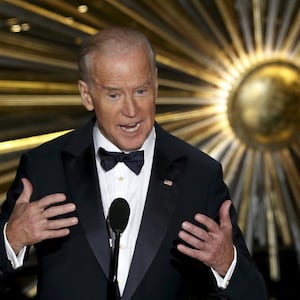A Democratic primary marked by dramatic shifts in momentum took another one on Tuesday night, as former Vice President Joe Biden jumped out to quick, decisive victories in several major Super Tuesday states.
The Associated Press reported that Sen. Bernie Sanders (I-VT) was poised to notch victories in California, Colorado, Utah, and in his home state of Vermont. But the bigger surprise was that, as soon as the polls closed, Biden was declared the winner in Virginia, a state with a potentially large delegate haul that seemed more of a toss up just days prior. Then, 30 minutes later it happened again, this time in North Carolina where Biden had campaigned just hours before his massive South Carolina win on Saturday. After another 30 minutes, Alabama was added to Biden’s column. Biden’s strength in the south continued from there, with a win coming later in the evening in Oklahoma, Tennessee and Arkansas, and finally, in Texas.
On a stunning night, Biden’s victories weren’t confined to the south. Minnesota, which was called for Biden shortly before 10 p.m, was the first state to show that the former VP was enjoying a breakthrough night. The state had switched from a caucus in 2016 to a primary in 2020 and results hurt Sanders, who had won 61.6 percent of the vote there when running against Hillary Clinton. Then came Massachusetts, which was called about an hour later, giving Biden a win in a state that Sanders seemed likely to prevail in and which was home turf to another rival, Sen. Elizabeth Warren (D-MA).
The night wasn’t a complete loss for Sanders, whose strengths were visible elsewhere on the map, starting with the biggest prize of all: California. The Vermont Independent claimed an early victory in Colorado, which returned to a primary system after 20 years of holding caucuses, giving him a potentially-large delegate haul. He scored a win in Utah as well. One feature that seemed likely to help Sanders in those two states was the fact that there was early voting, meaning that many ballots were cast prior to Biden’s South Carolina win. All told, 14 states were voting with more than 1,300 delegates up for grabs.
Just a few days ago, it seemed likely that Sanders would score major victories across the board on Tuesday and solidify his standing as the undisputed frontrunner in the race. But Biden’s win in South Carolina and the subsequent decision of several other candidates—Sen. Amy Klobuchar (D-MN), former South Bend Mayor Pete Buttigieg (D-IN), and former Rep. Beto O’Rourke (D-TX)—to suspend their campaigns and endorse him have altered the primary’s dynamics.
Sanders, well-funded and steady for months, built a strong infrastructure in several Super Tuesday states—most notably in Texas and California. Biden, meanwhile, spent the last 48 hours playing catch-up, bolstered by the primary win, the endorsements, and an infusion of cash. As a result, it increasingly looks like Sanders and Biden will find themselves in a dogfight for delegates, potentially all the way up to the convention in Milwaukee this July.
Biden and Sanders were not the only two candidates competing on Tuesday. Warren’s camp fell silent after it emerged that she had suffered an embarrassing defeat in her home state of Massachusetts.
Former New York City Mayor Michael Bloomberg, who was competing in primaries for the first time this cycle, spent roughly half a billion dollars on his campaign, but conceded on Tuesday that he likely would not get to the convention with the majority of delegates. Instead, he said, a contested convention is “the only way I can win.”
His only win on Tuesday night was the caucus in the U.S. territory of American Samoa. The former mayor, however, appears keen on continuing his campaign. An advertising buying firm reported that he had already placed new ads in states that vote soon, including Florida, Georgia, Illinois, Michigan, Missouri, Ohio, Oregon, Pennsylvania, Wisconsin, and Washington.








